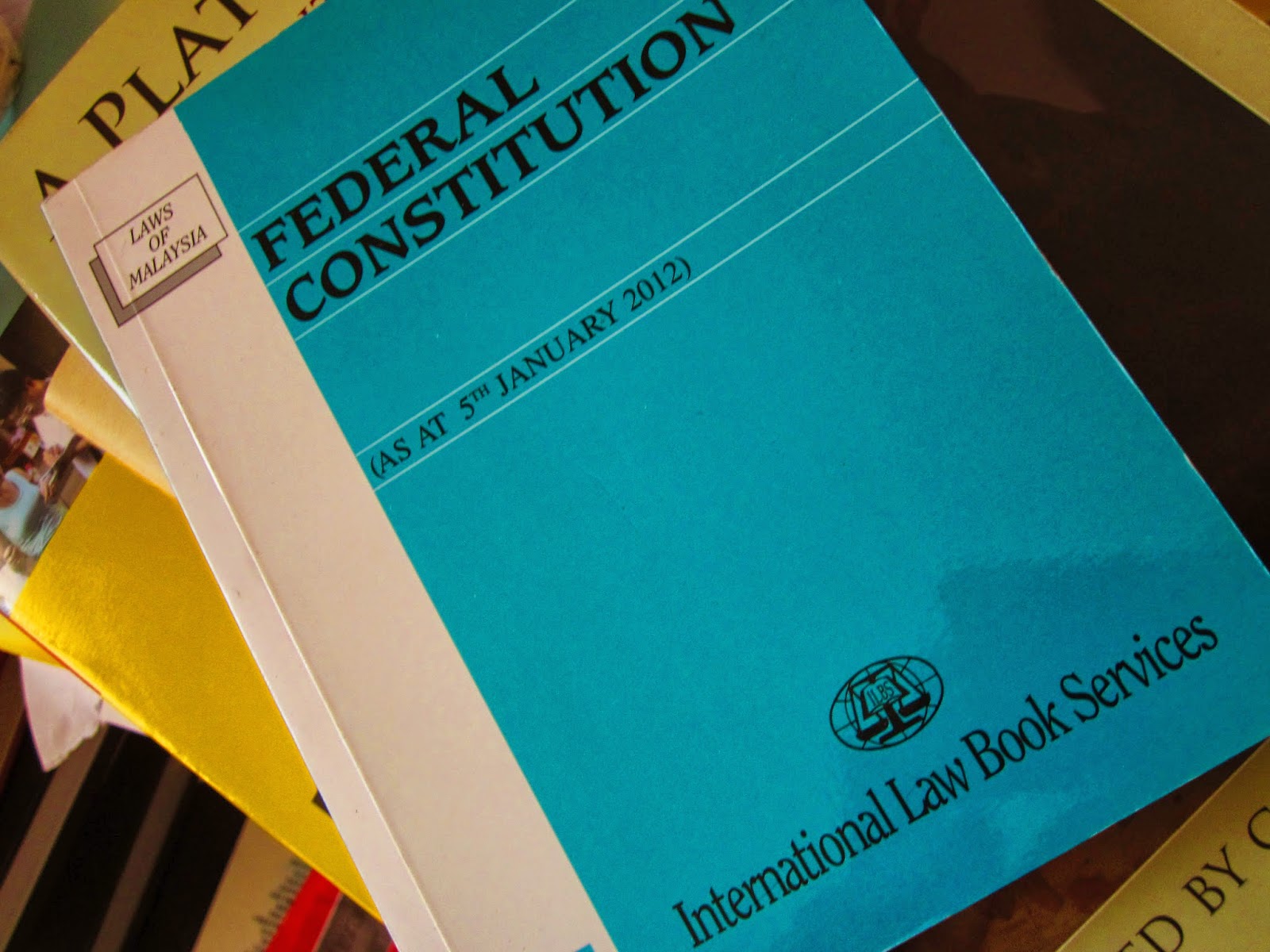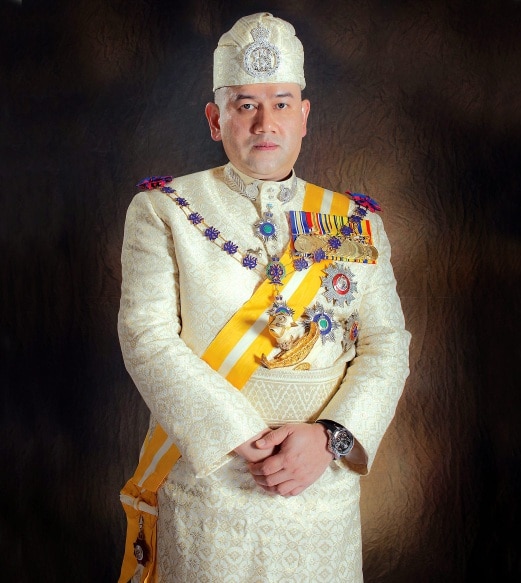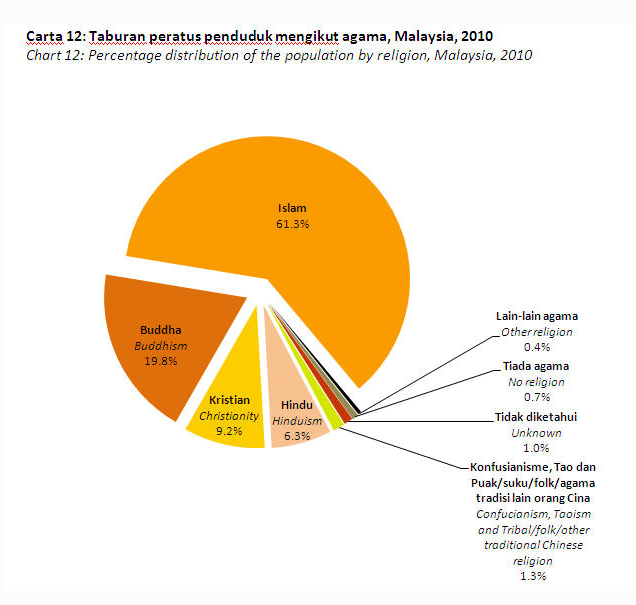What The Malaysian Constitution Says About Your Religious Rights And Freedom
Know your rights!
However, conversations about religious rights and freedom is at an all-time high right now. So, we decided to take a look at what the constitution of Malaysia says about religious practices in the country.
Before that, let's take a look at some of the basic outlines on religion according to the constitution of Malaysia:
The details below on religious rights were taken from the Malaysian constitution. Note that any additional remarks we included have been italicised.
Islam is the religion of the Federation: but other religions may be practised in peace and harmony in any part of the Federation.
Article 3: The State Religion states that:
- In every State other than States not having a Ruler the position of the Ruler as the Head of the religion of Islam in his State in the manner and to the extent acknowledged and declared by the Constitution. (In these states - Pahang, Selangor, Johor, Negeri Sembilan, Kedah, Kelantan, Perlis, Terengganu, and Perak, the Sultan is the Head of Islam.)
- The Constitution of the States of Melaka, Penang, Sabah and Sarawak shall each make provision for conferring on the Yang di-Pertuan Agong shall be Head of the religion of Islam in that State.
- Notwithstanding anything in this Constitution the Yang di-Pertuan Agong shall be the Head of the religion of Islam in the Federal Territories of Kuala Lumpur and Labuan; and for this purpose Parliament may by law make provisions for regulating Islamic religious affairs and for constituting a Council to advise the Yang di-Pertuan Agong in matters relating to the religion of Islam.
The Sultan of Kelantan, Sultan Muhammad V is the 15th and current Yang di-Pertuan Agong of Malaysia.
Image via NSTAlso note that the constitution defines ethnic Malays as Muslims. Malays are people who profess the religion of Islam, habitually speak the Malay language, and conform to Malay customs.
Muslims are not allowed to convert to other religions legally, but people of other faiths can convert to Islam.
Under the country's dual legal system, all matters pertaining religious and family issues involving Muslims are handled by the Sharia courts, while the civil courts rule on all other issues pertaining to both Muslims and the rest of the country's population.
According to the Department of Statistics Malaysia, about 61.3% of the Malaysian population is made up of Muslims. Buddhists make up 19.8%, Christians 9.2%, Hindus 6.3%, while Confucianism, Taoism, other traditional Chinese religions make up about 1.3% of the population.
So, what are some of the religious rights you have as a Malaysian?
Constitution of Malaysia, Article 11: Freedom of Religion
1. Every person has the right to profess and practice his religion and, subject to Clause (4), to propagate (spread and promote) it. (For example, you cannot be stopped from practising your religion, whatever it may be, in Malaysia.)
2. No person shall be compelled to pay any tax the proceeds of which are specially allocated in whole or in part for the purposes of a religion other than his own.
3. Every religious group has the right -
(a) to manage its own religious affairs;
(b) to establish and maintain institutions for religious or charitable purposes; and
(c) to acquire and own property and hold and administer it in accordance with law.
4. State law and in respect of the Federal Territories of Kuala Lumpur and Labuan, federal law may control or restrict the propagation of any religious doctrine or belief among persons professing the religion of Islam.
To matters pertaining religion and education:
Article 12: Religion and Education
1. Without prejudice to the generality of Article 8 (Equality Before the Law and Non-Discrimination), there shall be no discrimination against any citizen on the grounds only of religion, race, descent or place of birth -
(a) in the administration of any educational institution maintained by a public authority, and, in particular, the admission of pupils or students or the payment of fees; (For example, if you were applying to study at a public university in Malaysia, your religion should not be the deciding factor on whether or not your application is successful.) or
(b) in providing out of the funds of a public authority financial aid (scholarships) for the maintenance or education of pupils or students in any educational institution (whether or not maintained by a public authority and whether within or outside the Federation).
2. Every religious group has the right to establish and maintain institutions for the education of children in its own religion, and there shall be no discrimination on the ground only of religion in any law relating to such institutions or in the administration of any such law; but it shall be lawful for the Federation or a State to establish or maintain or assist in establishing or maintaining Islamic institutions or provide or assist in providing instruction in the religion of Islam and incur such expenditure as may be necessary for the purpose.
3. No person shall be required to receive instruction in or take part in any ceremony or act of worship of a religion other than his own.
4. For the purposes of Clause (3) the religion of a person under the age of eighteen years shall be decided by his parent or guardian.
While the constitution includes rights that clearly protect religious minorities in Malaysia, a report released by the United States Commission on International Religious Freedom (USCIRF) says otherwise. It spoke in length about incidents where religious freedom are infringed upon in the country.
"In 2015, many in the Malaysian government, political parties, and religious leadership prioritised the Muslim faith and Malay identity in a manner that threatens religious freedom," read the report.
From complaints from non-Muslims about difficulties in building places of worship, to harassment and attacks on non-Muslim houses of worship, the report detailed how while these incidents are rare in the country, it is happening and that is something that must be looked into.
The Malaysian constitution protects people of all faiths and allows them to practice their religions freely. Therefore, if anything, the problem may lie with the implementation of these rights.
However, we too, as citizens, need to do our part by ensuring that everyone is fully aware of these laws that are in place in terms of religion in Malaysia.
Problems with religious tolerance and lack of acceptance may also come from the lack of general knowledge regarding the laws in the country that promotes peaceful practice of all religions.




